Question And Answer
Publications
Articles, publications, books, tools and multimedia features from the U.S. Institute of Peace provide the latest news, analysis, research findings, practitioner guides and reports, all related to the conflict zones and issues that are at the center of the Institute’s work to prevent and reduce violent conflict.

Elie Abouaoun on Tunisia’s New Constitution
On Monday, Tunisians voted on a new constitution proposed by President Kais Saied that vastly expands the powers of his office. While turnout was low, many Tunisians “support what the president is doing … they are voting based on one specific objective, which is to improve economic and social conditions,” says USIP’s Elie Abouaoun.
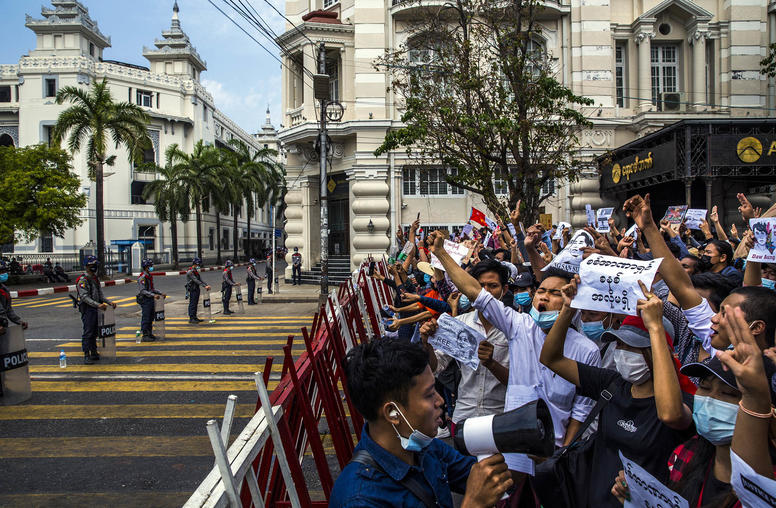
Why Myanmar’s Desperate Generals Executed Prominent Pro-Democracy Figures
From virtually the moment Myanmar’s military overthrew the country’s democratically elected government last year, the generals have faced a popular uprising that they met with escalating brutality. Even so, their decision last week to put to death — by hanging — four high-profile democracy advocates sparked shock and outrage at home and around the world. USIP’s Jason Tower, Priscilla Clapp and Billy Ford discuss what is behind the coup regime’s bloody move and its implications for Myanmar and international efforts to bring peace and democracy to the Southeast Asian country.
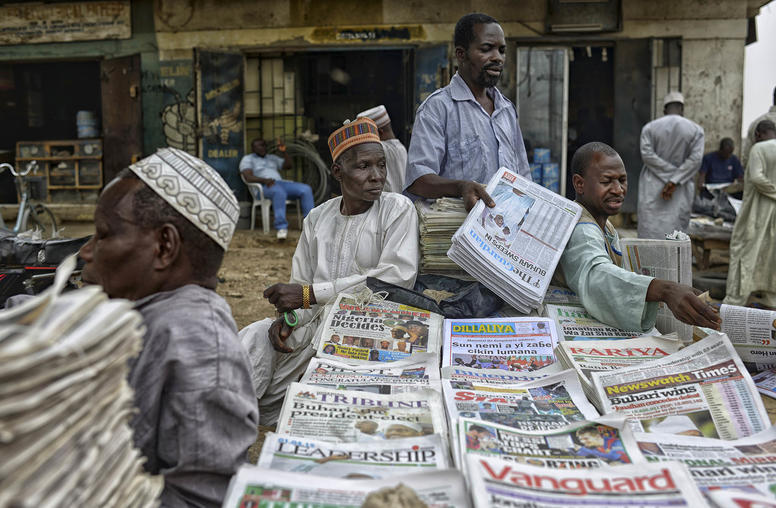
Amid Nigeria’s Turmoil, an Election Could Alter its Democracy
In mid-summer 2022, Nigeria is just seven months away from elections that could strengthen, or set back, its democracy. Good news includes a surge in voter registrations and a wave of civic engagement among young Nigerians who in recent years have often despaired of better governance through elections. Yet dangers loom: risks of electoral violence or disputed election results in a country where political and criminal violence has reached new levels. To help Africa’s most populous nation pivot toward stability — and to indirectly bolster democratization across the continent — the United States and other international partners should provide diplomatic, political and technical support for Nigeria’s electoral authority.
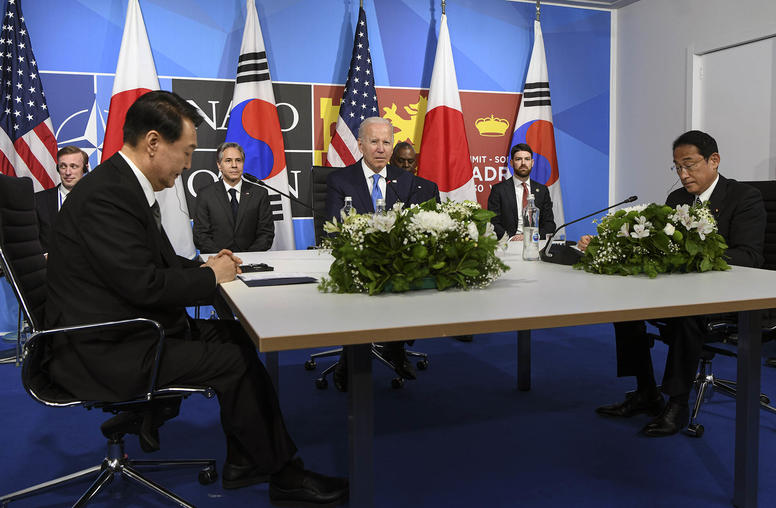
Mended Ties Between Japan and South Korea Would Boost Regional Security
Relations between Japan and South Korea have soured in recent years after unresolved disputes re-emerged from acrimonious eras in their shared history. But the current leaders of the two East Asian countries have shown a willingness to rebuild ties. And amid North Korea’s nuclear rhetoric and China’s expanded aims in the region, South Korean Foreign Minister Park Jin’s recent trip to Japan serves as a welcomed first sign of a thaw in bilateral tensions. USIP’s Frank Aum looks at the state of South Korea-Japan relations, how they can be improved, and the geopolitical implications of continued tension amid the challenges posed by China and North Korea.
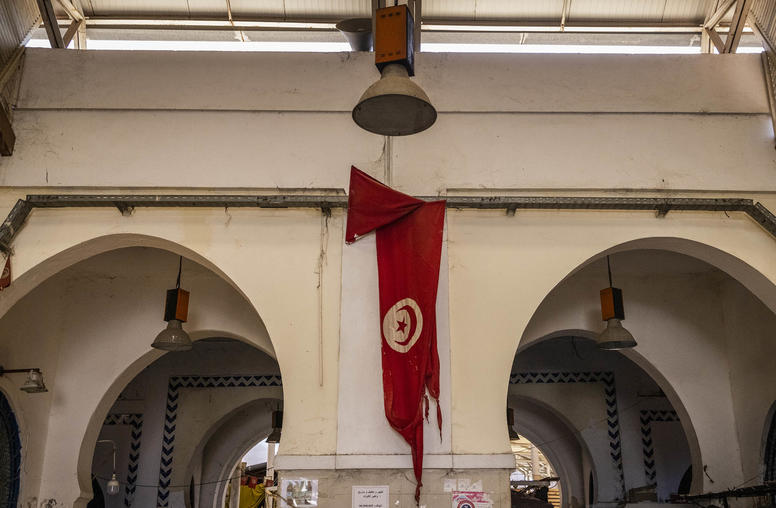
Tunisia’s new constitution expands presidential power. What’s next for its democracy?
A year after Tunisian President Kais Saied began a series of moves that expanded presidential powers, a new constitution further empowering the presidency has been approved by referendum. Amid a dire economic crisis, many Tunisians expressed support for Saied’s moves, as the promise of the 2011 uprising evaporated over the last decade. While the referendum passed with 94 percent of the vote, only 30 percent of Tunisians participated. Once heralded as the sole democratic success of the Arab uprisings, Tunisia’s democratic future trajectory is more uncertain than ever following the constitutional referendum.
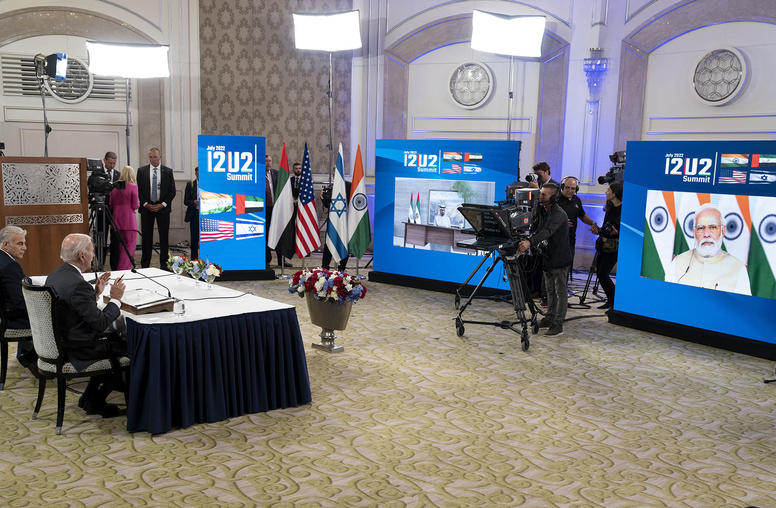
What You Need to Know About the I2U2
As part of his visit earlier this month to the Middle East, President Biden participated in the first leaders summit of a new grouping made up of Israel, India, the United Arab Emirates and the United States. Known as the I2U2, the countries’ foreign ministers formed the bloc in the fall of 2021 to deepen technological and private sector collaboration in the region and tackle transnational challenges in six focus areas: water, energy, transportation, space, health and food security. Beyond the announcement of a food security initiative and a hybrid renewable generation facility for India, little was revealed about what’s next for I2U2.
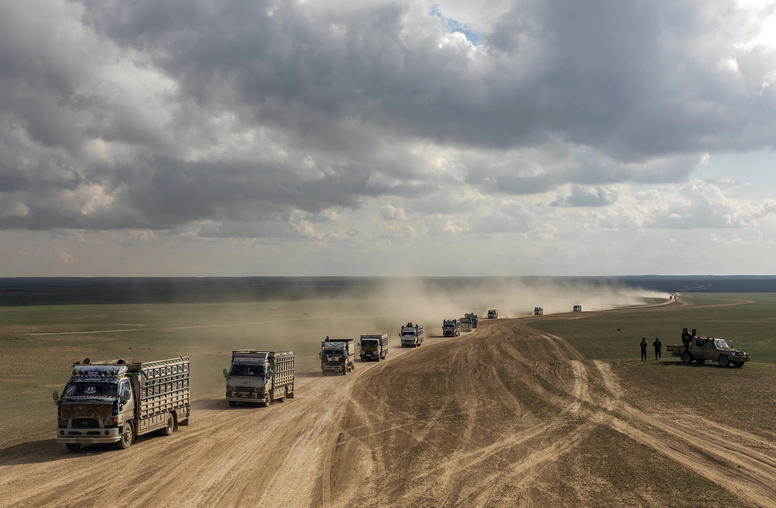
ISIS is a Problem of Yesterday, Today and Tomorrow
More than three years after its military defeat in Iraq and Syria, ISIS is a downgraded threat thanks to the collective efforts of the U.S.-led global coalition that coalesced to defeat it along with Iraqi and Syrian partners. While the extremist group’s capacity has been drastically reduced and millions of people have returned home, ISIS has managed to continue attacks year after year despite no longer holding territory. Meanwhile, some of the most difficult human legacies — the challenges facing the people the ISIS conflict left behind — are still with us, with no end in sight.
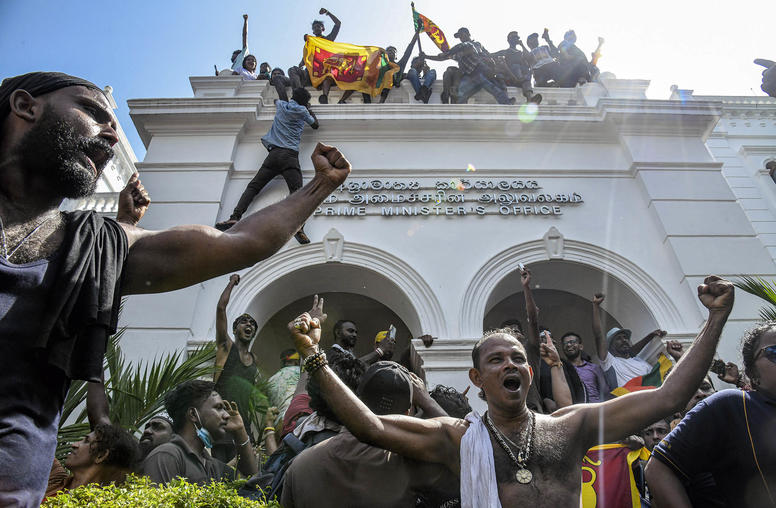
Sri Lanka Teeters on the Brink
Sri Lanka is grappling with its most serious political and economic crises since its independence in 1948. Navigating these interlinked crises will require reforming the South Asian island nation’s constitution to reduce the power of the executive presidency and securing a bailout from the International Monetary Fund (IMF), according to experts.

Hacia una Cultura de Estado de Derecho
Hacia una cultura de Estado de derecho se recomienda principalmente para profesionales del sector judicial de medio y alto nivel, ya que asume que el lector tiene algún grado de conocimiento y experiencia dentro del sistema de justicia en su propio país. Esto incluye funcionarios gubernamentales como legisladores, fiscales, jueces, policías y funcionarios penitenciarios y representantes no gubernamentales incluyendo abogados defensores, representantes de instituciones nacionales de derechos humanos y otros órganos de supervisión y miembros de organizaciones de la sociedad civil.
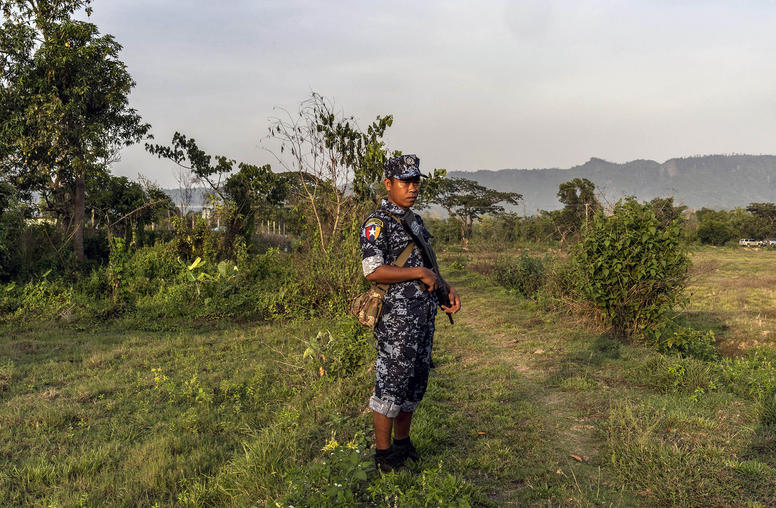
In Myanmar’s Rakhine State, a Fraying Truce May Hold Key to Anti-Regime Fight
Myanmar has been crippled by growing political turmoil and militant resistance since the army overthrew the elected civilian government on February 1, 2021. Today, most of the country is engulfed in a virtual civil war. In Rakhine State, however, home to one of Myanmar's most powerful ethnic armed organizations, a tenuous peace still prevails under a cease-fire reached with the pre-coup military in 2020. At the time, the truce benefited both the military and its adversary, the Arakan Army. Now, under the pressures unleashed by the military’s power grab, that deal is fraying. Should it collapse, the coup regime will face a vastly strengthened insurgency. The people of Rakhine, collaterally, will all but certainly suffer brutal counterstrikes from the air force and artillery of a military untroubled by its record of war crimes.